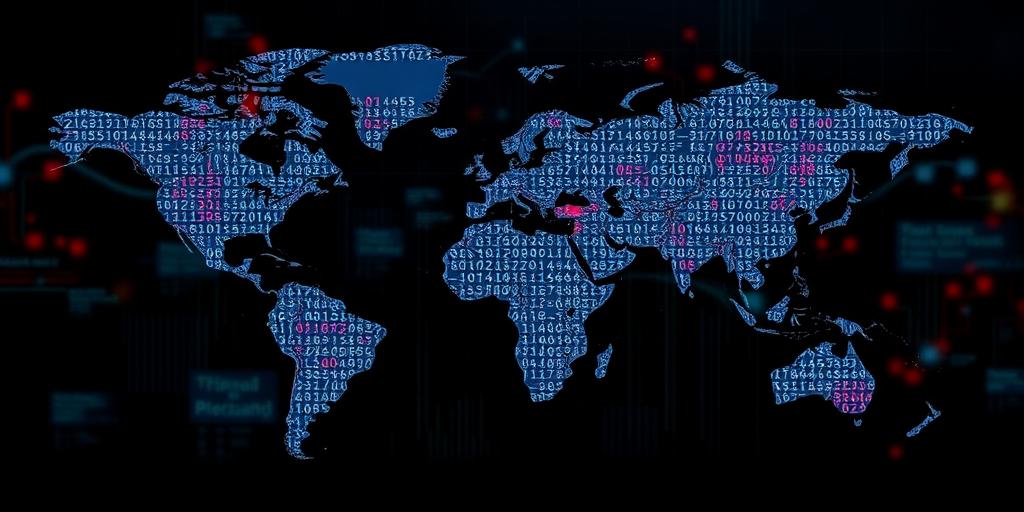The Evolving Landscape of Global Privacy Laws
In an increasingly interconnected digital world, personal data has become a valuable commodity. Consequently, governments worldwide are enacting and updating privacy laws to protect their citizens' information. This article provides an overview of the key changes happening in privacy legislation across the globe.
Key Privacy Laws Around the World
- General Data Protection Regulation (GDPR) - Europe: The GDPR, enacted in 2018, set a new standard for data protection globally. It applies to any organization that processes the personal data of individuals in the European Economic Area (EEA), regardless of the organization's location. Key provisions include:
- The right to access, rectify, and erase personal data.
- The requirement for explicit consent for data processing.
- Mandatory data breach notifications.
- Significant fines for non-compliance.
- California Consumer Privacy Act (CCPA) and California Privacy Rights Act (CPRA) - United States: California has been at the forefront of data protection in the U.S. The CCPA, which came into effect in 2020, grants California residents several rights, including:
- The right to know what personal information is collected about them.
- The right to delete personal information.
- The right to opt-out of the sale of personal information. The CPRA, which amended the CCPA, introduced additional protections and established the California Privacy Protection Agency (CPPA) to enforce these rights.
- Personal Information Protection Law (PIPL) - China: China's PIPL, which came into effect in 2021, is one of the most comprehensive data protection laws in the world. It regulates the processing of personal information of individuals in China and imposes strict requirements on data collection, processing, and transfer.
- Other Notable Laws:
- Canada's Personal Information Protection and Electronic Documents Act (PIPEDA): Establishes rules for how private-sector organizations collect, use, and disclose personal information in the course of commercial activities.
- Brazil's Lei Geral de Proteção de Dados (LGPD): Similar to GDPR, it regulates the processing of personal data and grants individuals rights over their data.
- India's Personal Data Protection Bill: This bill is still under consideration, but it aims to establish a comprehensive framework for data protection in India.
Emerging Trends and Changes
- Increased Enforcement: Data protection authorities are becoming more active in enforcing privacy laws. Companies found in violation of these laws face significant fines and reputational damage.
- Focus on Data Localization: Some countries are implementing data localization requirements, which mandate that certain types of data be stored within their borders. This trend raises complex issues for multinational companies.
- Emphasis on Transparency and Consent: Privacy laws are increasingly emphasizing the need for transparency in data processing practices and the importance of obtaining valid consent from individuals.
- AI and Data Protection: The rise of artificial intelligence (AI) has raised new challenges for data protection. Regulators are grappling with how to ensure that AI systems are developed and used in a way that respects individuals' privacy rights.
Implications for Businesses
- Compliance is Essential: Businesses must understand and comply with the privacy laws that apply to their operations. This requires a proactive approach to data protection and a commitment to implementing appropriate safeguards.
- Data Mapping and Inventory: Organizations need to map their data flows and maintain an inventory of the personal data they process. This will help them identify potential compliance gaps and ensure that they are handling data in accordance with applicable laws.
- Privacy Policies and Notices: Businesses must provide clear and transparent privacy policies and notices to individuals. These documents should explain what data is collected, how it is used, and with whom it is shared.
- Data Security: Implementing robust data security measures is critical to protecting personal data from unauthorized access, use, or disclosure.
Conclusion
The landscape of global privacy laws is constantly evolving. Organizations must stay informed about the latest developments and adapt their practices accordingly. By prioritizing data protection and respecting individuals' privacy rights, businesses can build trust with their customers and maintain a competitive advantage in the digital age.









